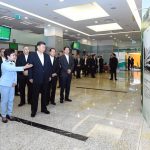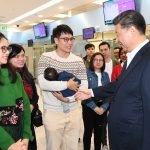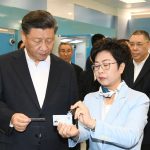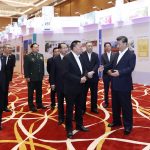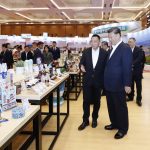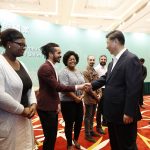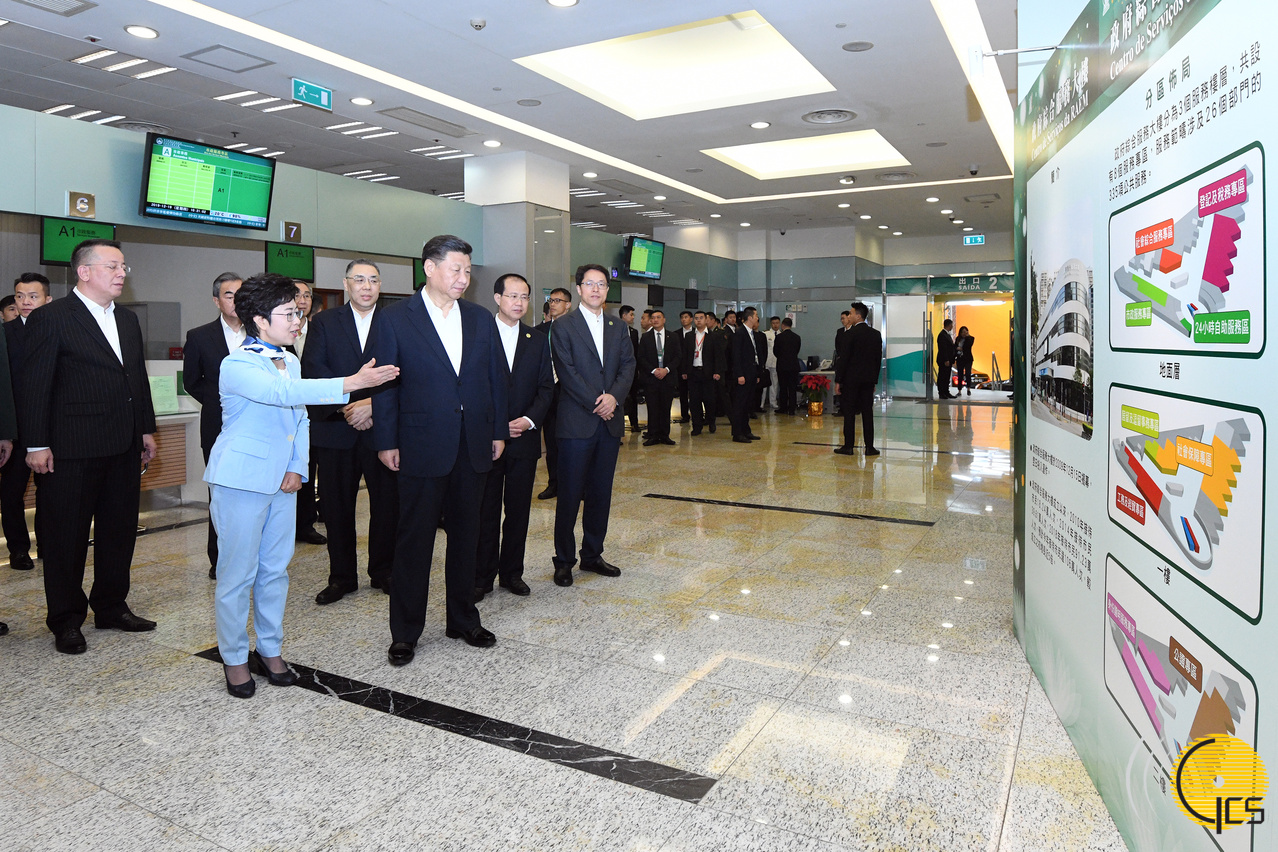 President Xi Jinping pays a visit to the Government Integrated Services Building to learn about public services in Macao.
President Xi Jinping pays a visit to the Government Integrated Services Building to learn about public services in Macao.
The President, Mr Xi Jinping, today affirmed Macao’s functions in serving China and Portuguese-speaking countries. He added that Portuguese-speaking countries enjoyed huge potential in terms of their scope for development.
President Xi, who is on a three-day visit to Macao, made the remarks during an afternoon tour of the China-Portuguese-speaking Countries Commercial and Trade Service Platform Complex, in the company of Macao’s Chief Executive, Mr Chui Sai On.
The morning of the second day of President Xi’s visit had featured a trip to the Government Integrated Services Building in the Northern District. Both site visits aimed to present to the President aspects of Macao’s public services, economic development, education programme and urban planning.
The China-Portuguese-speaking Countries Commercial and Trade Service Platform Complex, located near Nam Van Lake, is a landmark building that integrates the delivery of various services such as: economic and trade exchanges; corporate services; conferences and exhibitions, cultural exhibitions; training of talented individuals; and the presentation to the public of exhibitions on urban development and infrastructure work.
While at the China-Portuguese-speaking Countries Commercial and Trade Service Platform Complex, President Xi was briefed about the city’s latest developmental progress, such as the effort to boost Macao’s role as a commercial and trade cooperationservice platform between China and Portuguese-speaking countries (known as the “Platform” policy).
In his presentation to the President, the Secretary for Economy and Finance, Mr Leong Vai Tac, gave details of the Macao Government’s work in economic and trade matters; in development of the traditional Chinese medicine sector; and in financial services, youth entrepreneurship, education and cultural affairs. All these efforts were designed to advance Macao’s Platform policy.
President Xi also talked today to 11 college students studying in Macao. Those students came from respectively, Malaysia, the Republic of Korea, Cape Verde, Brazil and Portugal; countries covered by the “Belt and Road” initiative. President Xi said he hope the students would enjoy their studies in Macao and share with society the gains they had made.
During his visit to the China-Portuguese-speaking Countries Commercial and Trade Service Platform Complex, President Xi watched a video explaining Macao’s urban planning, and was briefed by the Secretary for Transport and Public Works, Mr Raimundo do Rosário, on the progress on construction work relevant to that. President Xi paid particular attention to the city’s work regarding disaster prevention and mitigation.
In the morning while at the Government Integrated Services Building, President Xi was briefed by the Secretary for Administration and Justice, Ms Chan Hoi Fan, about the types of service available there; the operation of kiosks installed on behalf of the Identification Services Bureau; the features – including the technology employed – on old and new editions of Macao resident identity cards; and the city’s system for the support of the elderly.
While at the Government Integrated Services Building, President Xi had friendly conversations with local residents waiting at service counters.
The Government Integrated Services Building in the Northern District provides a one-stop location for provision of Government services to the public, and greater efficiency in their delivery.


